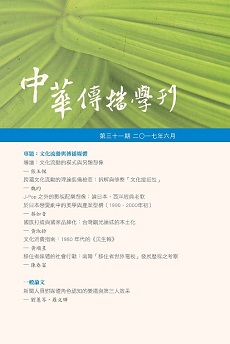 閱覽人數: 4751
閱覽人數: 4751
June
2017
No. 31
文化流動與傳播媒體
Cultural Flow and Media頁數:79 - 115
作者(中)
黃淑鈴
作者(英)
Shuling Huang
關鍵詞(中)
:國家品牌化、國族打造、論述、觀光客的凝視、觀光意象
關鍵詞(英)
nation branding, nation building, discourse, tourist gaze, destination image
中文摘要
本研究分析戰後至今台灣官方的觀光論述,發現有四個時期的
轉變,論述主軸從「國族打造」逐漸轉向「國家品牌化」的典範,觀光意象的形塑則從「中國化」朝「本土化」發展。本文論證了:(1) 觀光是國族打造的意識型態國家機器之一,以較隱而不顯的形式實踐平實的國族主義;(2) 觀光的國家品牌化顯示市場的經濟邏輯凌駕了國族的文化邏輯,卻弔詭地打造了台灣新國族;(3) 觀光參與了文化的本土化,而非只是反映文化的本土化。
轉變,論述主軸從「國族打造」逐漸轉向「國家品牌化」的典範,觀光意象的形塑則從「中國化」朝「本土化」發展。本文論證了:(1) 觀光是國族打造的意識型態國家機器之一,以較隱而不顯的形式實踐平實的國族主義;(2) 觀光的國家品牌化顯示市場的經濟邏輯凌駕了國族的文化邏輯,卻弔詭地打造了台灣新國族;(3) 觀光參與了文化的本土化,而非只是反映文化的本土化。
英文摘要
This study explores the construction of “tourist gaze” by examining Taiwan’s tourism policies from the 1950s to the present day. It identifies four distinctive stages through which discourses of tourism policy has shifted from the paradigm of nation building to that of nation branding. The constructed gazing has also changed from “Chineseness” to “Taiwanness.” This study showed that tourism is an ideological state apparatus that materializes banal nationalism. The trend towards nation branding seems to undermine the rhetoric of nation building, as the logic of economic competitiveness replaces the importance of nationalism. However, the attempt to construct Taiwan as an object of tourist gaze in light of globalization, paradoxically, helps construct Taiwan as a new nation and realize its cultural subjectivity. Tourism thus also participates in Taiwan’s cultural Taiwanization.